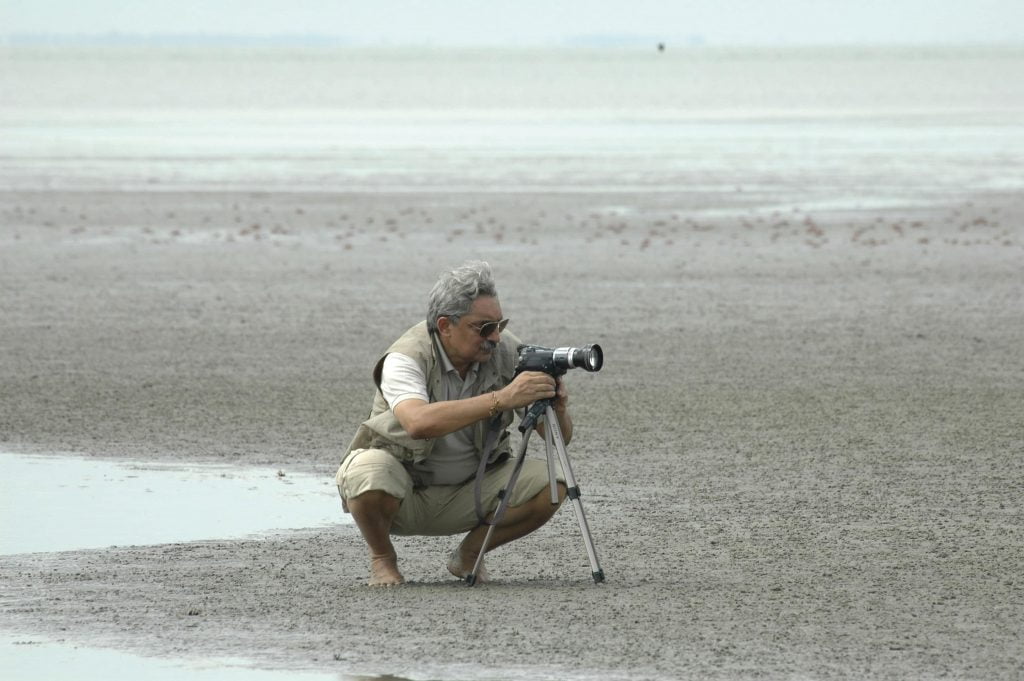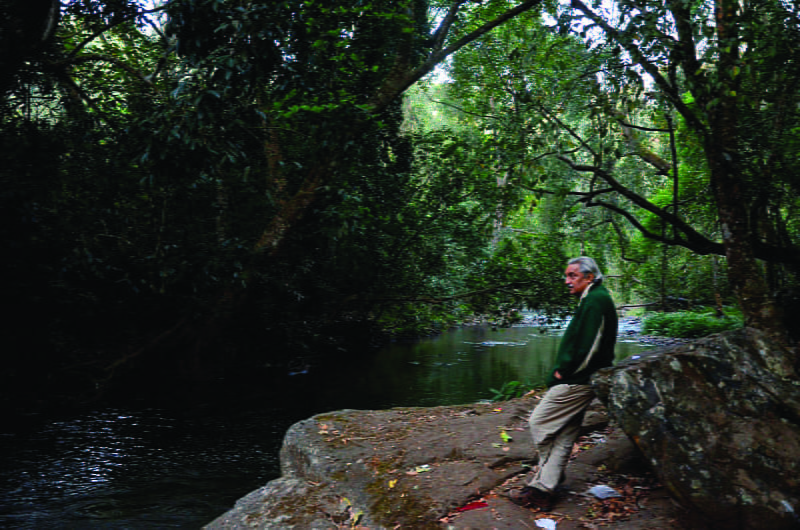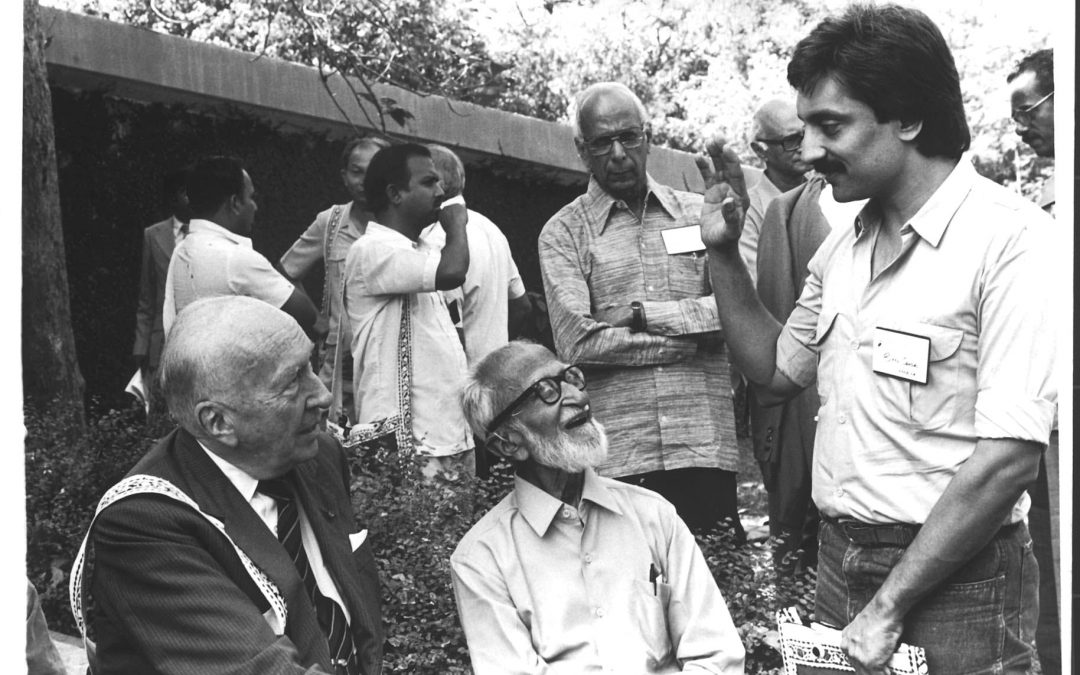Our guest today is the much-admired Bittu Sahgal. Mention Mr. Sahgal and three words come up: Sanctuary, activism, and conservation. He founded Sanctuary magazine in 1981. It morphed into Sanctuary Nature Foundation in 2001. In these capacities, and in his role as the President of the Bombay Natural History Society (BNHS), Mr. Sahgal knows the wildlife and ecology of Asia intimately.
Today, he suggested that we talk about avians to the rescue. We are the Bird Podcast after all.
Links:
Wonderful article about Salim Ali written by Bittu Sahgal here.

Wikipedia on Bittu Sahgal
Some thought-provoking images from the Sanctuary Wildlife Photography awards
Santuary Asia magazine

Questions:
3:00 How does protecting birds and their habitats help us deal with what you call an existential crisis? He talks about climate change and small interventions. He compares tigers with avians in terms of conservation. “You save the forest. You save the species.” Talks about nematodes in the soil, tics on the backs of the tigers, the whole ecosystem.
7:00 It is time that the tigers came down from the pedestal and birds need to go higher on the pedestal.
8:00 Birders as climate warriors. Birds disperse seeds, maintain habitats.
9:30 Economists are realizing that the economy is a wholly owned subsidiary of the biosphere.
10:20: There is an urgency to his mission. Thanks to climate change, the economy is teetering on the brink of collapse. Technology alone cannot help. My loyalty is to the biosphere. It is necessary for us now to go down to the minutiae.
11:40 He talks about Dr. Salim Ali
12:00 Talks about how birds are protectors of the infrastructure.
14:00 What is a magic wand that he would wave to influence. He says that he would try to influence the brain between the two ears of human beings. Nature is a simple economic principle. If you undervalue an asset, you will lose it. The time for fighting is over. Self interest in protecting habitat comes from making sure that we use local communities to protect areas.
16:00 Can you walk us through how things have changed since you began Sanctuary Asia? How things have go sharply downfill. Forests dismembered. Our power as environmental protectors has come down. Biodiversity that you protect gives a chance for the local communities to benefit from tourism.
18:30 How tigers numbers going up is a facade.
18:55 There is no doubt that the biosphere will win this battle. There is no doubt that we will make life difficult for ourselves. The circle of life. Logic is the same as the tiger. Birds occupy vital habitats.
21:00 Last year, you delivered a keynote titled “To protect nature, start at home.” Can you elaborate on that for our viewers and listeners? In your instagram posts, you talk about preserving little areas of wilderness within the city. What do you mean? Not golf courses, football fields. If we want the city to be future ready, use one-third of what you have for real wilderness.
22:00 About the common Pipistrelle bat.
23:00 Humayun Abdul Ali. When Indira Gandhi wanted to sent frog’s legs to France, Mr. Ali’s reply. Send frogs leg but ask them to give us medicines for malaria. Humayun Ali got people to change using logic.
Birds are protecting water. Wetlands.
24:15 Favourite spot? He talks about Ranthambore being “home.”
25:00 How he loves Dachigam and the Dagwan river. About the peace that comes.
26:00 I don’t know whether to celebrate what exists or mourn what is going. Talks about Kaziranga.
27:30 Protecting nature. Start at home. Gandhi quote. The person who does nothing because he cannot do everything is the worst of the lot.
29:00 About his conversation with the Dalai Lama. About monks carrying tiger bones inside their robes. Belinda Wright. Debbie Banks. Exposed this.
32:00 What is the pleasure of birding for you? Human beings are soiling their own homes. The need of the hour is to share your love of nature. Join the BNHS. Birders are going to be the saviors of this subcontinent.
34:00 Are you optimistic about the future? We think we are more clever than we really are. We haven’t learned to use our brains. Like a baby elephant. Darwin said, it is the most adaptable that will survive. We haven’t learned to adapt. We want the environment to adapt to us.
37:37 He loves spiders. Loves sparrows. He talks about children being his main constituents. Kids for Tigers. The tiger is a metaphor for all of nature. Protect trees, protect all that live in trees. How to protect the powerful from consuming everything that there is in the buffet.
40:30 Haven’t been to Ladakh. Talks about his wish to go to Ladakh.
41:25: Message to birders

Formal Bio below:
Bittu Sahgal is an environmental activist, writer and the founder of Sanctuary Nature Foundation, an Indian nonprofit conservation organization that works on environmental policy, advocacy, science, on-ground support and habitat management. He is also the founding editor of Sanctuary Asia, a wildlife and ecology magazine.
Besides the Sanctuary Asia and Cub magazines, Sahgal has published numerous works in both English and regional languages. He has authored coffee table books on wildlife, including a series on some of India’s national parks and sanctuaries: The Bandhavgarh Inheritance, The Sundarbans Inheritance, The Bharatpur Inheritance, The Kaziranga Inheritance, The Corbett Inheritance and The Periyar Inheritance and a stand-alone, India Naturally. He also produced 30 wildlife documentaries.



